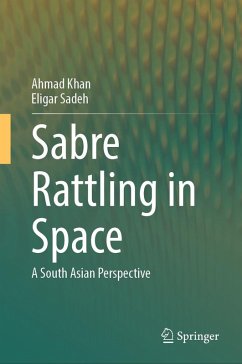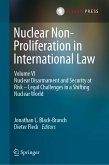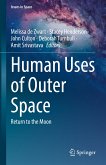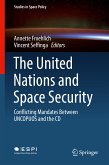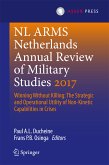This book offers historical and theoretical context of the path followed by States, from space militarization to weaponization, and deconstructs traditional security paradigm myths to prove that a paradigm shift has been brought because of deadly space weapons developed by major space powers. It reconciles that the strategic distrust between two leading space competitors, U.S. and China, has prompted them to pursue counter-space capabilities. The ripple effect of this troubling relation in space is not limited at the global level, but has witnessed a trickledown effect on regional security. In relation to this, the book offers details of the Indian space program including its military space ambitions, and provides information about Pakistan's objectives in space. It offers an overview of challenges to international space governance and how the structural flaws help states to aggressively follow a path toward space weaponization. Additionally, it discusses the UN negotiating arms control measures in space and the politics of states not to negotiate prevention of an arms race in outer space.
The book is a useful contribution to space security, from both traditional and contemporary approaches, covering history, theory, and application. It provides an academic as well as practical approach carrying appeal for professionals, experts, opinion makers, industry, academics, teachers, policy makers, politicians and masses from other walks of life who are interests in space security.
Dieser Download kann aus rechtlichen Gründen nur mit Rechnungsadresse in A, B, BG, CY, CZ, D, DK, EW, E, FIN, F, GR, HR, H, IRL, I, LT, L, LR, M, NL, PL, P, R, S, SLO, SK ausgeliefert werden.

